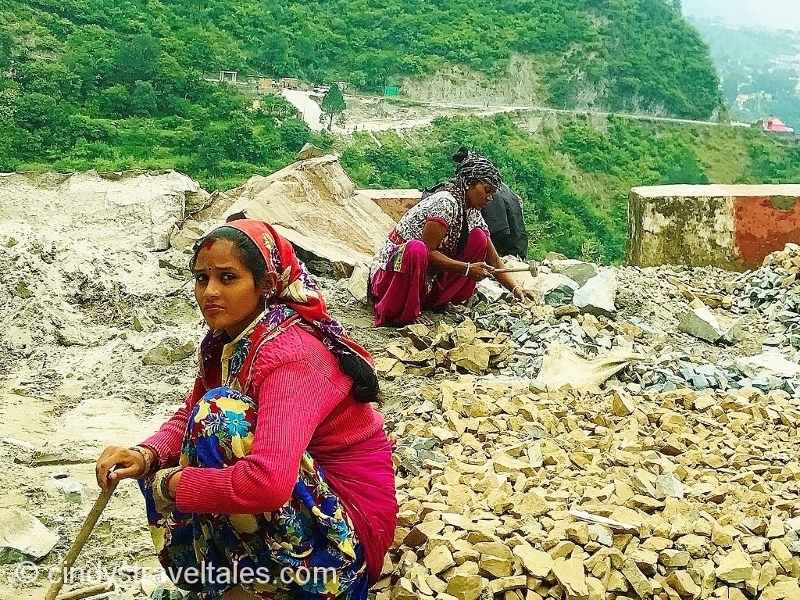Months ago when I was planning my Himalayan trek, I knew just getting to the trailhead in Gangotri would be an arduous journey entailing a propeller flight from Delhi to Dehradun and then driving 275 kilometres (171 miles) on a national highway. However, despite multiple conversations with the trekking company about what to anticipate that day, nothing quite prepares you for your first road trip in the mountains of India.
As a Westerner, it seemed reasonable to expect that the national highway would have some protocols adhering to safety, security and comfort standards. Who would have guessed that National Highway 34 would be largely a one-lane dirt passage teeming with a mishmash of motorbikes, rickshaws, tractors, wagons, trailers, cars, buses and trucks of all sizes? If you haven’t seen an Indian cargo truck up close before, you are in for a big surprise – their imposing oversized bodies are typically chock full with goods and people, whilst their exteriors are garishly hand painted in a colourful kaleidoscope and embellished with vibrant streamers, plastic garlands, sequined scarves, religious symbols and distinctive memorabilia. Their heftiness and sluggish pace fuels the perpetual need to overtake them, which then involves dodging oncoming travellers – a thoroughly intimidating experience, with no emergency shoulders or guardrails in sight.
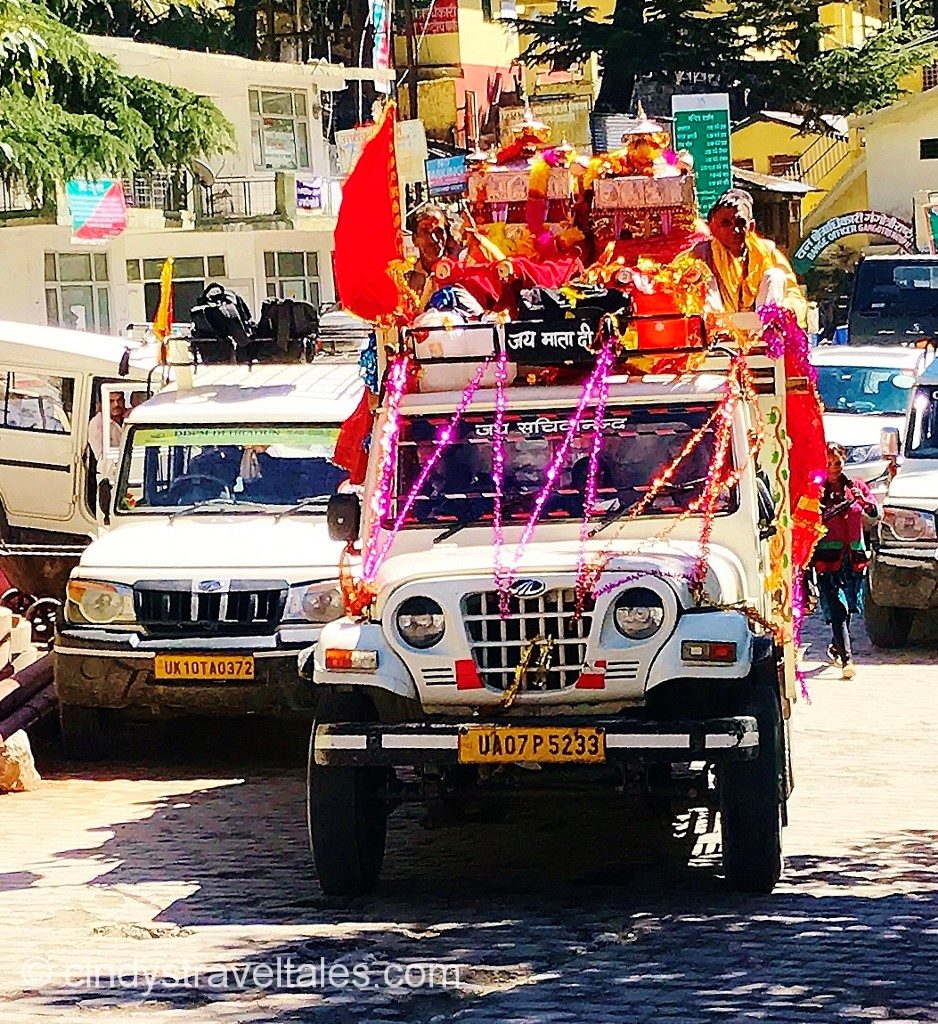
In addition, this year’s punishing monsoon rains triggered landslides and flash floods in northern India, causing our route to be in varying states of disrepair. Though it was promising to see billboards touting that the federal government is funding national highway maintenance, our hearts sank when we found young women – adorned in their eye-catching village attire squatting barefoot roadside in the rubble – crushing stones, one at a time, with only hammers.
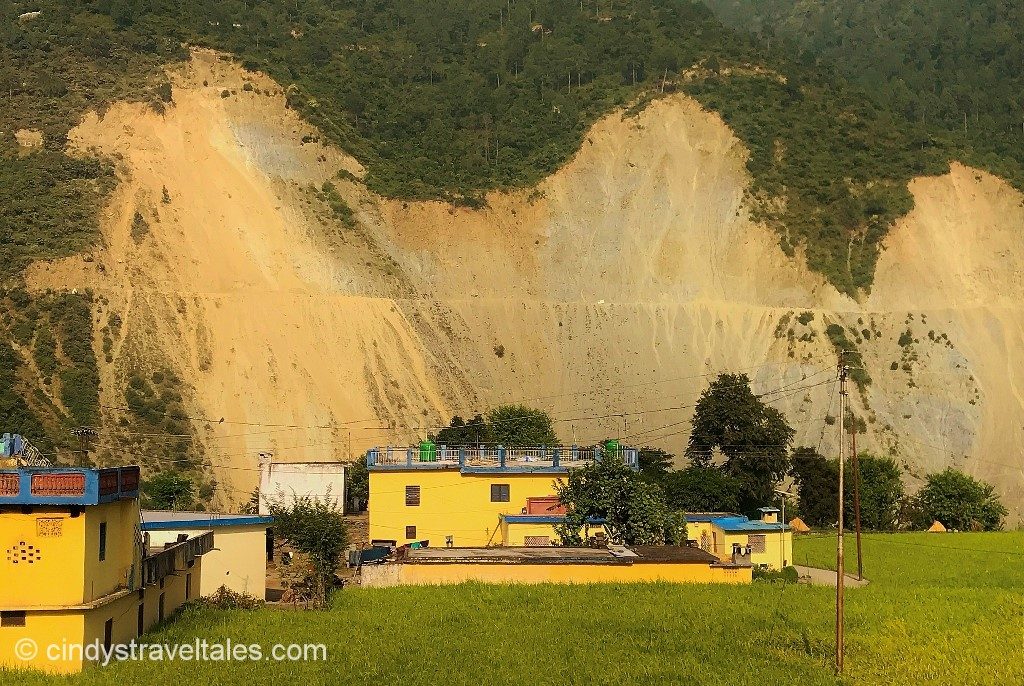
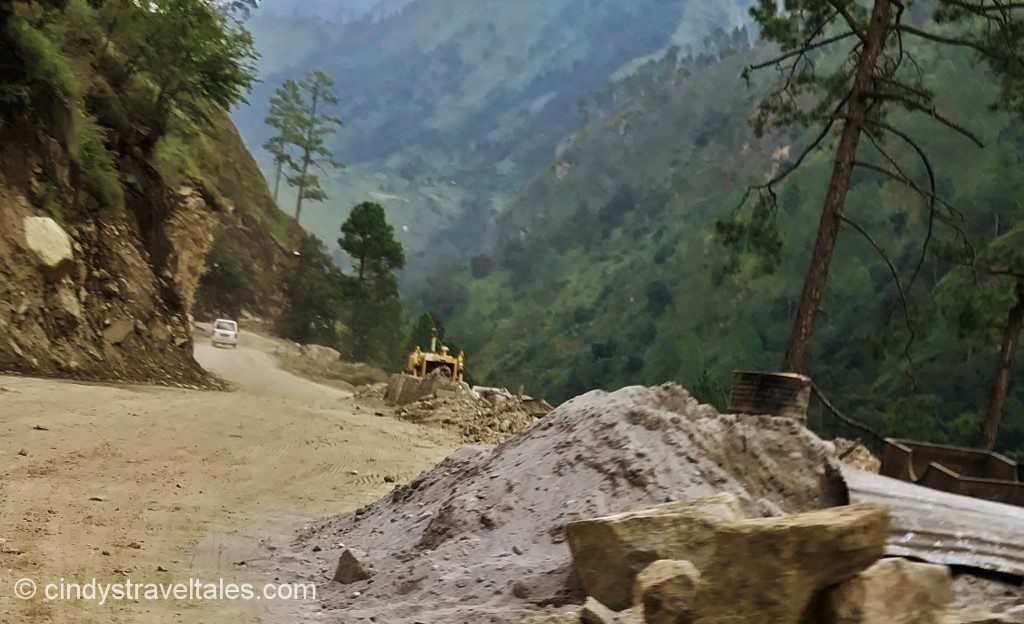
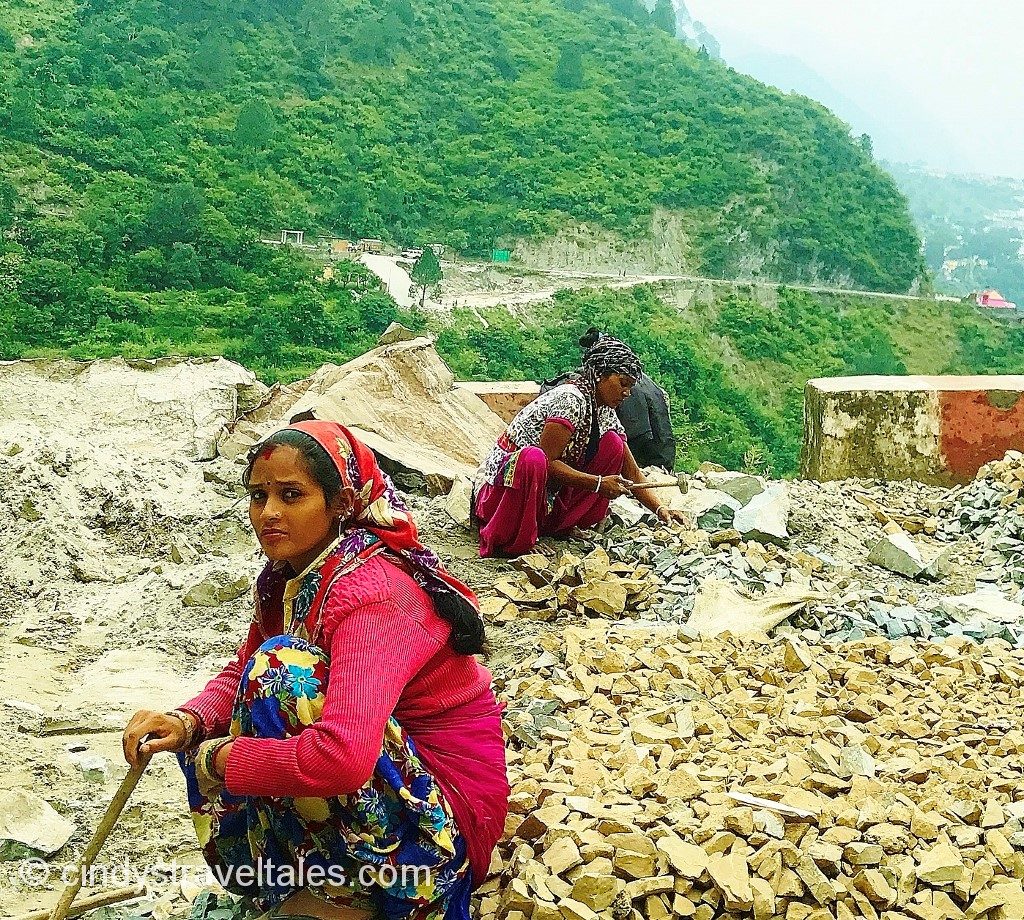
All day long, we encountered creatures, large and small, freely meandering down the middle of the street, unfazed by the daredevils on wheels or the billowing black exhaust. We were constantly manoeuvring around herds of sacred Brahman cows sauntering or even lying on the roadway, oblivious to the honking horns and screeching brakes. The flocks of goats were less ubiquitous, but since they are smaller and nimbler, they tended to dart in front of us suddenly, barely escaping being knocked down. The troops of monkeys were even more unpredictable as they played in the trees overhead, cheekily jumping onto the roofs of the slower vehicles. The pervasive chaos was unlimited – further including mules toting bricks, peasants balancing lopsided bales of hay on their heads, and countless giggling school children.
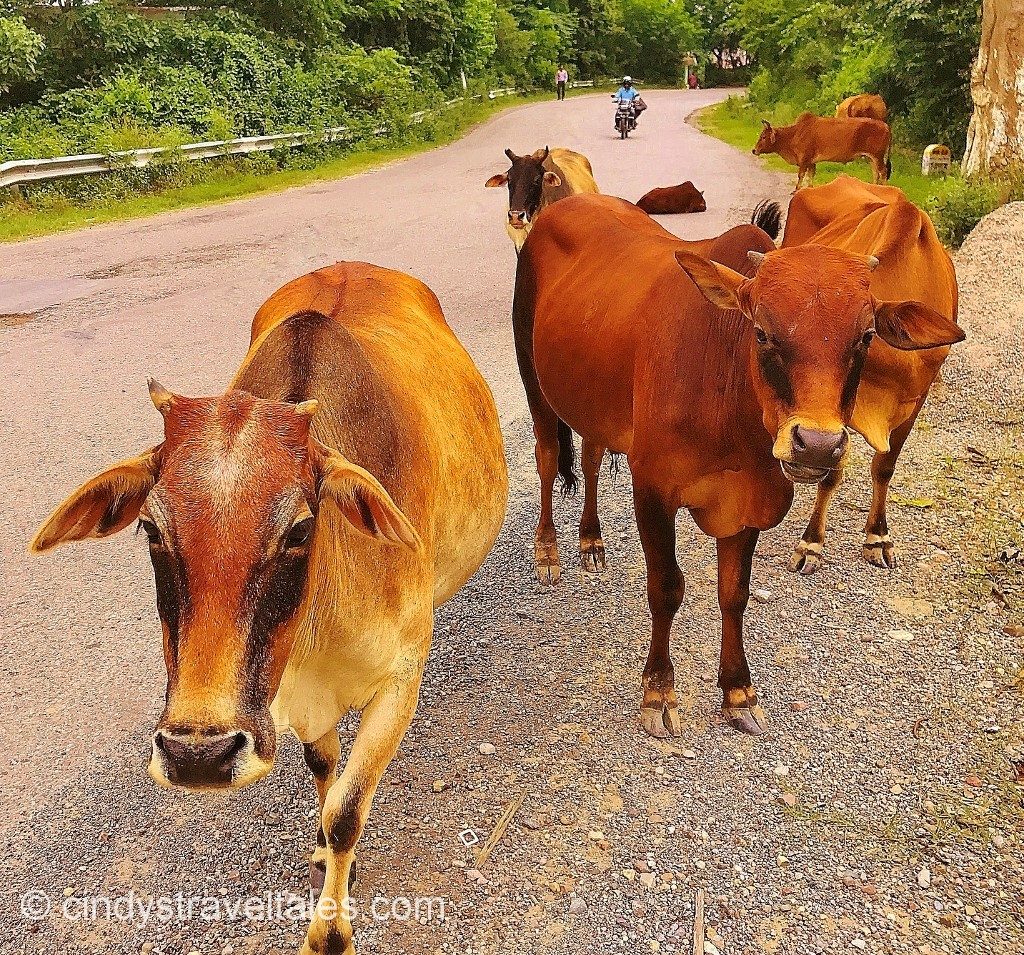
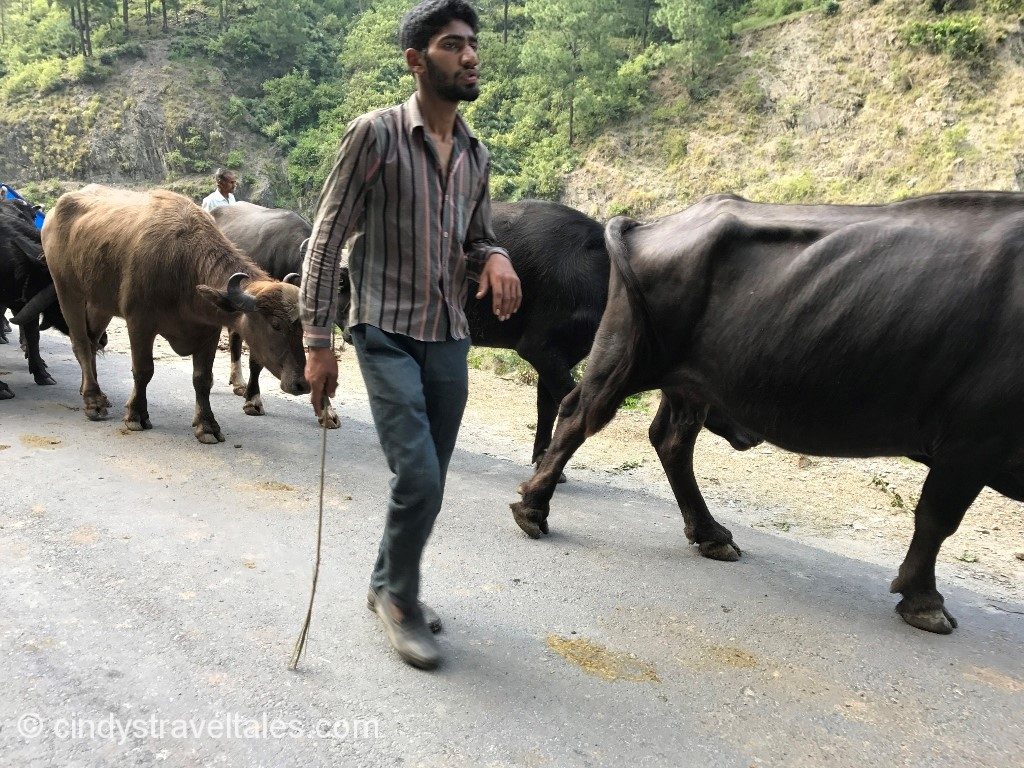
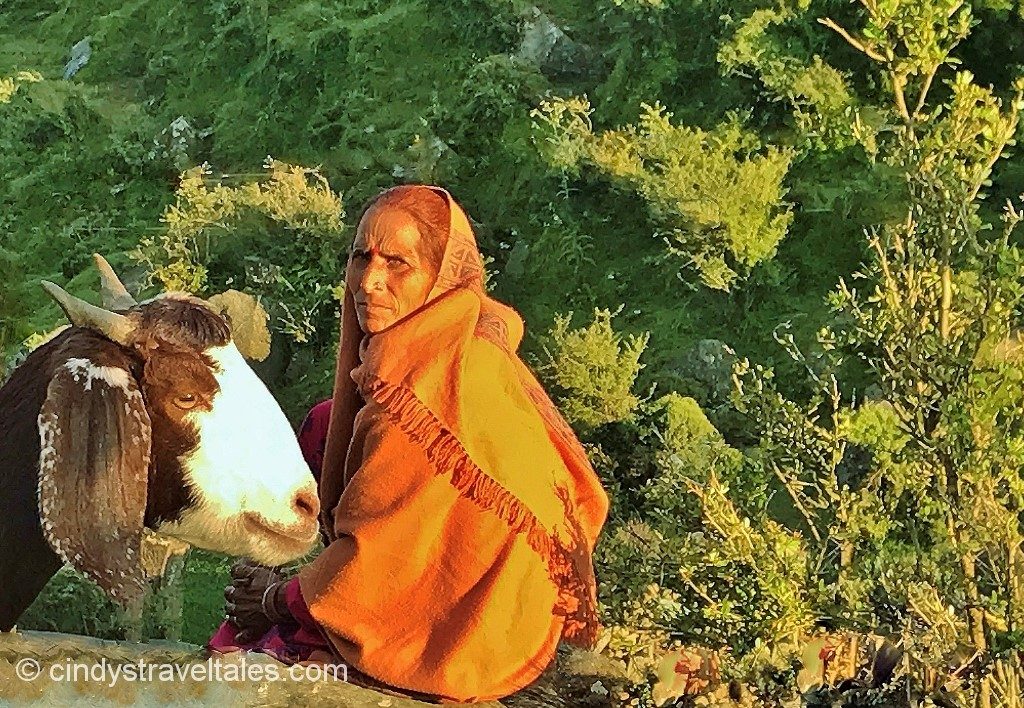
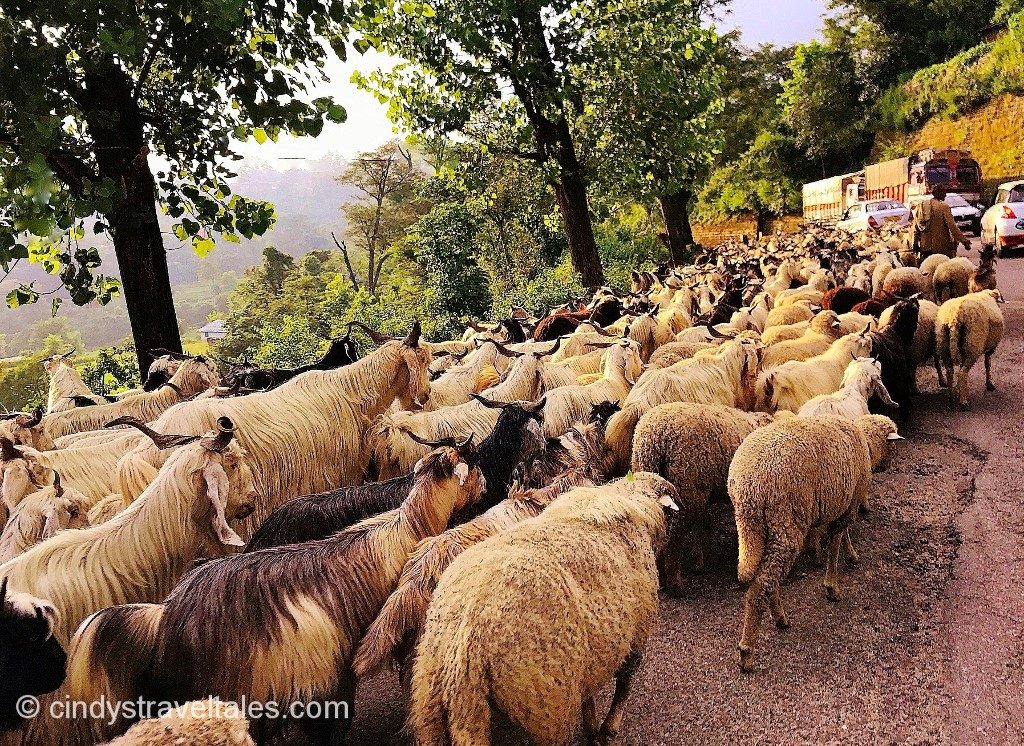
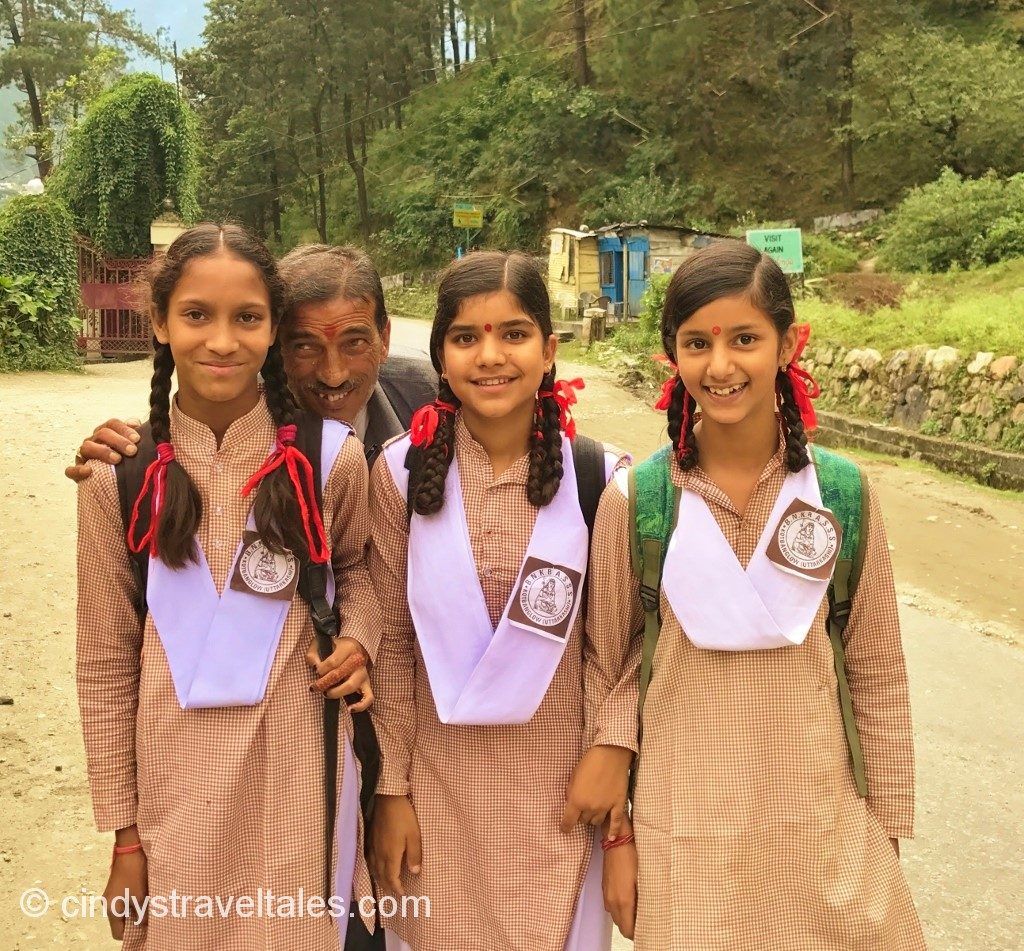
Despite the impression that this drive was insanely risky, we never witnessed a single accident and there was a noticeable lack of road rage. Nobody seemed to get worked up about any of the innumerable near misses, and everyone amicably went with the flow, with no rude gestures, verbal insults or physical threats targeted toward other drivers or obstacles.
The bottom line: it was a slow venture, indeed – leaving us exhausted from the 9-hour slog and bewildered at the psyche of Indian drivers. However, it did make arriving at Gangotri all the more exciting, in anticipation of our 10-day trek to Vasuki Taal and back.
Stay tuned for 2 additional articles providing in-depth insights into this gutsy expedition.

